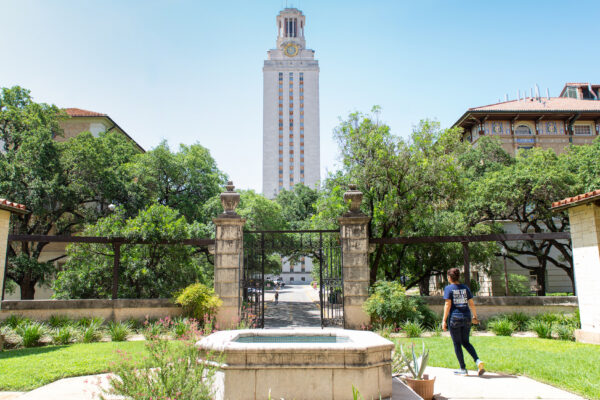It always seems fashionable to bash the younger generation. “Kids these days” are never as prepared, mature or responsible as the older generations want them to be.
Yet, time after time, each generation takes its place in the workforce to become parents, as well as community and civic leaders. But now, more than ever, we need to recognize that the younger generation doesn’t just have great potential.
They already have a tremendous capacity to change the world for the better. They have exactly the kind of mindset required to solve tomorrow’s problems starting now.
We saw the latest round of public handwringing about the rising generation as universities across the country prepared to open for the fall. Newspaper articles bemoaned that bringing students, many of them 18- to 22-year-olds, to university campuses would lead to massive outbreaks that would bleed into the surrounding communities.
These articles suggested that universities foolish enough to open would be closed by the end of September, because our students were just not up to the task of taking care of themselves.
This past April, The University of Texas at Austin asked me to head the academic working group for COVID-19 planning. We quickly realized that there were key principles that had to guide our decision about reopening our campus. (1) COVID-19 would be with us for the foreseeable future, (2) there wouldn’t be a viral cure or a vaccine for months or longer, and (3) that decreases in compliance with masks and social distancing would cause people to get sick.
That is, we understood immediately that no matter what safety procedures we put in place on campus, student behavior is going to determine whether we are able to stay open. The decision to open a university campus this fall was a bet on the students.
And it was a bet that many in the media told us we were mistaken to make.
We put a lot of resources in place to help us succeed. UT committed funds to ramp up a testing facility to run 5,000 COVID-19 tests a week. We partnered with the local public health authority to run a contact tracing facility that enabled us to reach out to people who were close contacts of individuals who tested positive for the coronavirus. We used emails, social media and websites to reach out to students to encourage them to create small groups of people to hang out with and to get tested regularly. We increased the number of studios we had available to stream classes via the internet.
But, none of this was going to work if our students were the irresponsible adolescents that we were told to expect.
We trusted our students and we were right. Students wore masks and for the most part, practiced social distancing. Yes, there were some off-campus parties that violated City of Austin guidelines, but generally speaking, students limited the gatherings they participated in. They took advantage of our testing facilities. They cooperated voluntarily with the contact tracing team.
As anyone can see from our publicly accessible COVID-19 dashboard, by mid-September, the number of new COVID-19 infections on campus remained low. The university had teams of epidemiologists and health experts monitoring what went on — and through contact tracing, they saw virtually no transmission of the disease from UT students to the wider Austin population. The administration adjusted messaging and policies throughout the semester. All of this helped, but the simple fact remains that if our students had not elected to behave responsibly, none of that hard work of our staff and faculty would have mattered.
I am not surprised by this outcome. I have spent my entire career working at universities and know our young students are an intelligent, respectful and caring group. I wish more of us would see that. For those concerned about the next generation of students — don’t be. The kids are alright.
Art Markman is the executive director of the IC2 Institute and serves as the head of the academic working group for COVID-19 planning at The University of Texas at Austin.
A version of this op-ed appeared in the Houston Chronicle.




